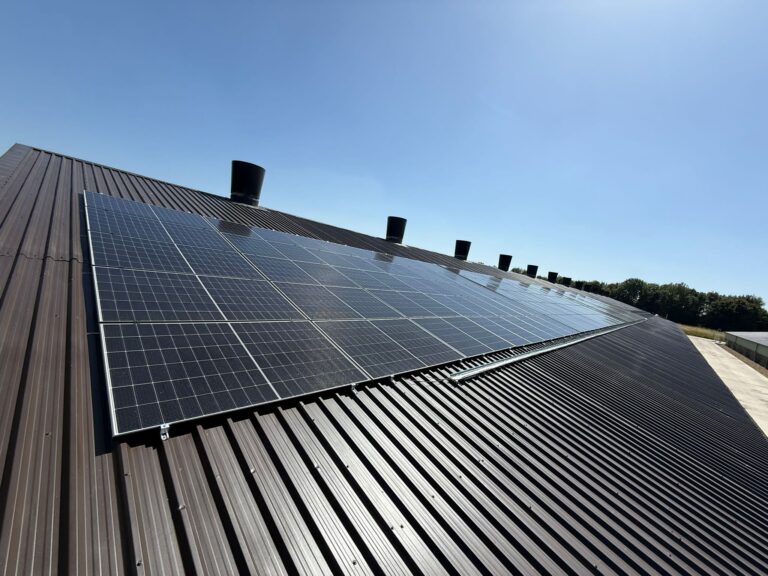Business Solar Use, Installation & Energy Savings Explained
UK businesses are under growing pressure to cut costs, reduce carbon emissions, and operate more sustainably. One solution gaining attention is business solar a way for companies to generate their own electricity, manage expenses, and demonstrate their commitment to the environment.
Thanks to advances in technology, supportive government policies, and rising electricity costs, commercial renewable energy systems are accessible to organisations of all sizes. Whether you run a small business premises or manage a large industrial site, installing a solar system can significantly impact your bottom line and boost your brand reputation.
In this guide, we’ll look at why companies are choosing solar, how commercial solar panel installations work, what factors influence commercial solar panels cost, and the savings you could expect over time.
Why Businesses Are Turning to Solar Energy
Across the UK, solar panels for business premises are becoming common. This change is driven by two main factors: the need to manage unpredictable energy prices and the desire to operate more responsibly.
Solar panels for businesses UK can provide a reliable source of power while reducing dependence on the grid. Many organisations are also taking advantage of tax incentives and capital allowances that make investing in solar more affordable.
For some, the move to business solar is about financial control. For others, it’s about meeting sustainability targets and responding to customer expectations. In reality, most companies benefit in both areas.

Understanding Commercial Solar Power Systems
A commercial solar power system produces much more energy than a typical residential setup. While a home might run on a modest number of panels, commercial solar power panels are arranged to power large-scale operations such as factories, offices, or warehouses.
Solar panels for commercial use are versatile. They can be installed on flat or pitched roofs, integrated into building facades, or even mounted on the ground where space allows. They can also be paired with battery storage, giving businesses the ability to use stored solar energy when sunlight is limited or during peak demand periods.
The Commercial Solar Panel Installation Process
For those considering solar, knowing the steps involved in commercial solar panel installations can help set expectations:
1. Site Survey
An inspection checks roof’s condition, orientation, and shading to see if the site is suitable for solar power commercial installations.
2. Energy Usage Review
Your consumption data is reviewed to size the system correctly.
3. System Design
Engineers prepare a layout and technical plan.
4. DNO Application
Approval from the Distribution Network Operator is required for grid connection.
5. Installation
A qualified commercial solar panel installer carries out the work, including mounting panels, wiring, and inverter setup.
6. Testing & Commissioning
The system is inspected and switched on, ready to generate electricity.
Choosing an experienced commercial solar panel installer like Excel Energy ensures compliance with regulations and maximises long-term performance.
Commercial Solar PANELS cost & ROI
The commercial solar panels cost varies a lot based on system size, the type of panels used, and the complexity of installation. Smaller systems for shops or offices may start from a few thousand pounds, while large industrial projects can require a six-figure investment.
The expanding solar panel market has made equipment prices more competitive in recent years. This shift helps reduce the payback period. For many businesses, the return on investment comes within five to seven years. After that, the electricity generated is basically free.

Energy Savings & Environmental Impact
Switching to commercial renewable energy offers two main benefits: lower costs and a smaller carbon footprint.
Many companies that use business solar report cutting their energy bills by 30–50%, depending on where they are, the size of their system, and operating hours. These savings can increase further when paired with energy storage or demand management strategies.
From an environmental point of view, commercial solar solutions lessen the dependence on fossil fuels and support corporate sustainability goals. Over a 20 years, even a medium-sized system can offset hundreds of tonnes of carbon emissions.
Choosing the Right Commercial Solar Panel Installer
Finding the right commercial solar panel installer is just as important as selecting the right equipment. Key factors to consider include:
✅ MCS certification and industry qualifications.
✅ Proven expertise with projects similar to yours.
✅ Clear information on warranties, aftercare, and system monitoring.
The best installers don’t just fit panels; they design turnkey commercial solar solutions tailored to your site and business objectives.
Is Solar Right For Your Business?
Before investing in solar panels for commercial use, it’s worth asking:
✅ Is your roof in good condition, and does it have suitable orientation?
✅ What are your current and projected energy needs?
✅ Can you take advantage of government incentives or grants?
✅ Would battery storage or EV charging integration increase your savings?
A well-planned system can deliver both immediate and long-term rewards, making solar one of the most practical investments for modern businesses.
Excel Energy Business Solar Solutions
To sum up, business solar offers UK companies a dependable way to reduce electricity costs, improve energy independence, and cut carbon emissions. With Excel Energy’s expertise in commercial solar panel installations, we can guide you through every stage from feasibility to installation and beyond.
If you want to find out how much commercial solar panels cost for your site and find out the amount you could save, contact Excel Energy today. Our team will assess your premises, recommend the most suitable commercial solar solutions, and deliver a system that works for your business for decades.
